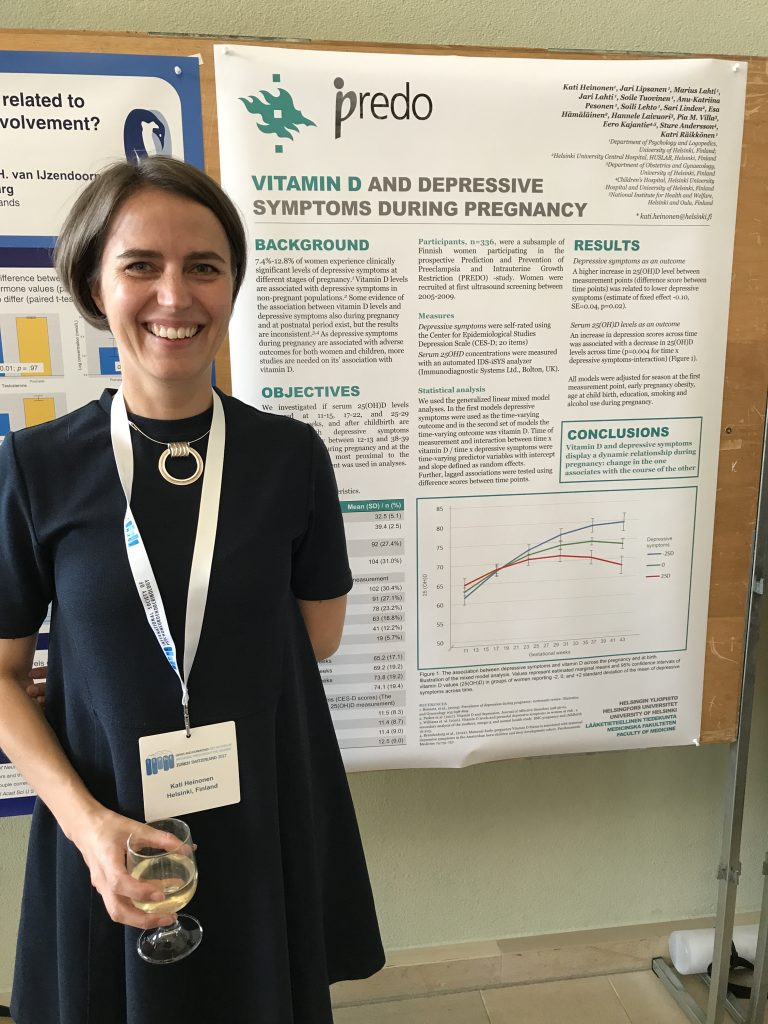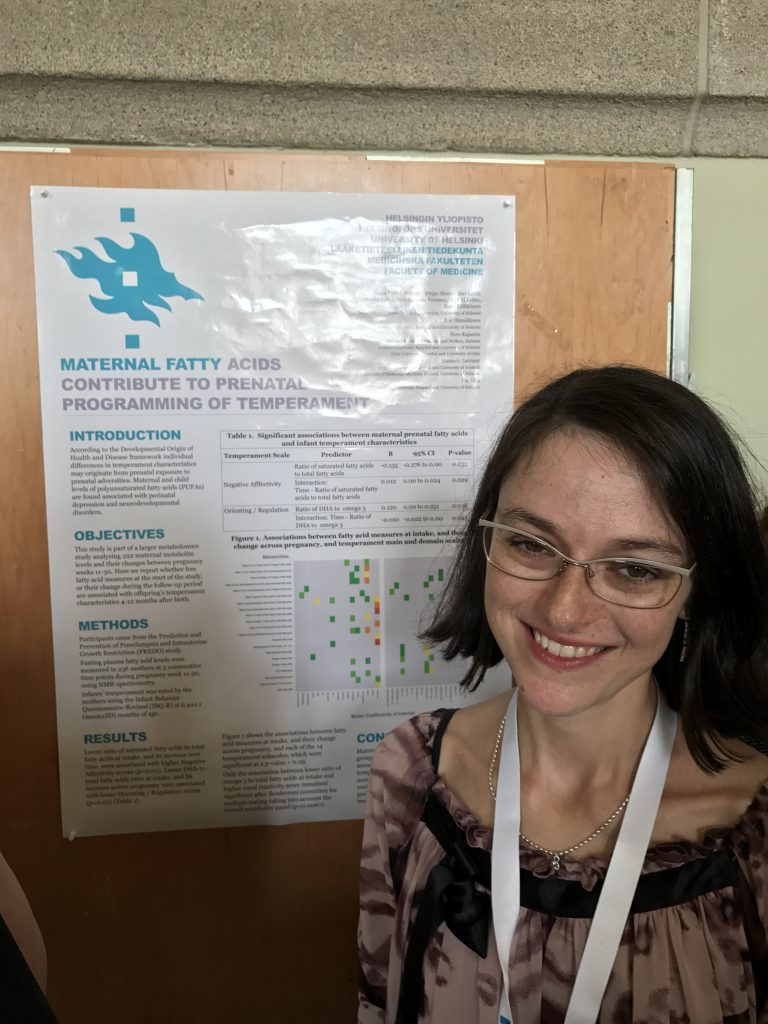Researchers in the Developmental psychology research group regularly attend international conferences to present our work and to connect with other researchers from around the world. A week ago three of our researchers, Kati Heinonen, Elena Toffol, and Elina Wolford, attended the 47th Annual conference of the International Society of Psychoneuroendocrinology in Zurich, Switzerland. The theme of the conference this year was “Genes and Hormones. Key factors of wellbeing throughout the life span.”
The conference was a busy three days of cutting-edge scientific presentations and great conversations with old and new friends and collaborators.
 The Depsy group had four presentations in the conference from the Prediction and Prevention of Pre-eclampsia and Intrauterine Growth Restriction (Predo) Study. On the first day, Kati Heinonen and Elena Toffol presented their research in a poster session. Kati presented the results on the association between maternal vitamin D levels and depressive symptoms during pregnancy. Earlier studies have found an association between vitamin D levels and depressive symptoms in non-pregnant populations, however, less is known of what happens during pregnancy. She found that increasing levels of depressive symptoms were associated with decreasing levels of vitamin D across pregnancy. Maternal vitamin D levels are important not only for the pregnant woman herself, but also for the developing fetus whose only source of vitamin D is the mother.
The Depsy group had four presentations in the conference from the Prediction and Prevention of Pre-eclampsia and Intrauterine Growth Restriction (Predo) Study. On the first day, Kati Heinonen and Elena Toffol presented their research in a poster session. Kati presented the results on the association between maternal vitamin D levels and depressive symptoms during pregnancy. Earlier studies have found an association between vitamin D levels and depressive symptoms in non-pregnant populations, however, less is known of what happens during pregnancy. She found that increasing levels of depressive symptoms were associated with decreasing levels of vitamin D across pregnancy. Maternal vitamin D levels are important not only for the pregnant woman herself, but also for the developing fetus whose only source of vitamin D is the mother.

Elena presented results using a novel approach to the study of health and disease conditions and their biomarkers, called metabolomics. The approach was used in the Predo study to target the metabolic status of mothers across pregnancy, and how it possibly influences their child’s development. She examined if maternal levels of fatty acids during pregnancy, and their change across pregnancy, have an influence on the child temperament characteristics at 6 months of age. Indeed, there seem to be some suggestive associations, which however will need to be confirmed in larger samples.
On the second day of the conference, Elina Wolford presented Anna Suarez Figueiredo’s work in a symposium titled “Stress and cellular aging”. Anna’s research uses a novel epigenetic gestational age biomarker, which measures an infant’s epigenetic gestational age in relation to chronological gestational age. Anna found that children of mothers with a history of depression or depressive symptoms during pregnancy display epigenetic gestational age immaturity at birth, which further predicts higher total and internalizing problems in early childhood in boys. Epigenetic gestational age partially mediates associations between maternal depression and childhood psychiatric problems. The second day of the conference ended with the conference dinner, which was held at Quai 61, a restaurant on the shore of lake Zurich.

On the third and final day of the conference, Elina Wolford presented her own research on the association between prenatal synthetic glucocorticoid exposure and child developmental milestones and psychiatric symptoms in a symposium titled “The impact of prenatal and postnatal stress in childhood on hypothalamic-pituitary-adrenal function, proinflammatory markers, and mental health in adolescence and adulthood”. Elina’s work shows that both preterm and term children, who have been exposed to synthetic glucocorticoids prenatally, have lower scores on measures of age-appropriate developmental milestones and more psychiatric symptoms. These findings suggest the need to extend clinical follow-up of child neurobehavioral development beyond the preterm group to the group exposed to prenatal synthetic glucocorticoids and born at term.
The ISPNE conference this year was very fruitful and inspiring and we can’t wait to go back to the beautiful city of Zurich. What a lovely venue for a conference!
/Elina Wolford
